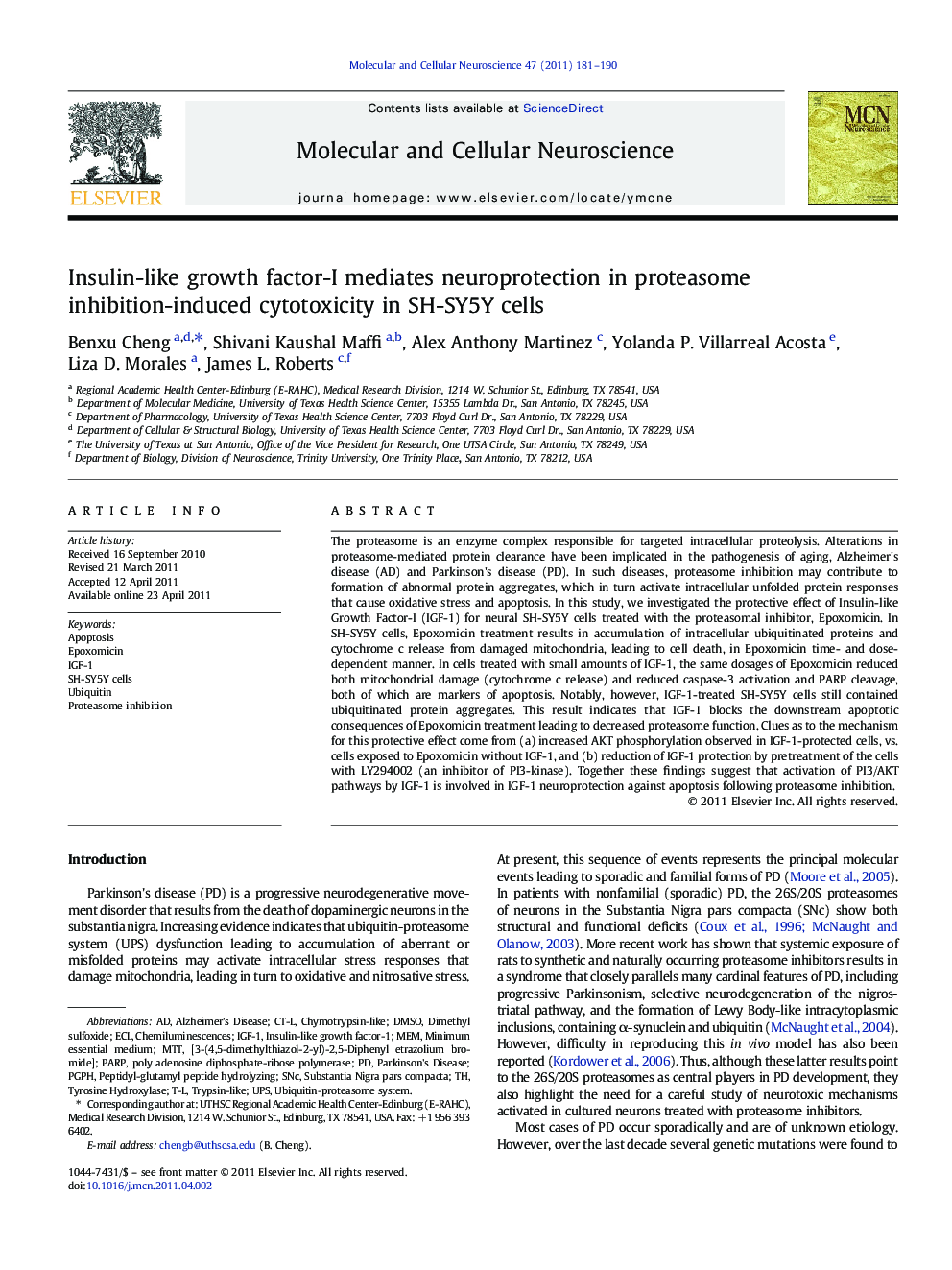| کد مقاله | کد نشریه | سال انتشار | مقاله انگلیسی | نسخه تمام متن |
|---|---|---|---|---|
| 2198659 | 1099387 | 2011 | 10 صفحه PDF | دانلود رایگان |

The proteasome is an enzyme complex responsible for targeted intracellular proteolysis. Alterations in proteasome-mediated protein clearance have been implicated in the pathogenesis of aging, Alzheimer's disease (AD) and Parkinson's disease (PD). In such diseases, proteasome inhibition may contribute to formation of abnormal protein aggregates, which in turn activate intracellular unfolded protein responses that cause oxidative stress and apoptosis. In this study, we investigated the protective effect of Insulin-like Growth Factor-I (IGF-1) for neural SH-SY5Y cells treated with the proteasomal inhibitor, Epoxomicin. In SH-SY5Y cells, Epoxomicin treatment results in accumulation of intracellular ubiquitinated proteins and cytochrome c release from damaged mitochondria, leading to cell death, in Epoxomicin time- and dose-dependent manner. In cells treated with small amounts of IGF-1, the same dosages of Epoxomicin reduced both mitochondrial damage (cytochrome c release) and reduced caspase-3 activation and PARP cleavage, both of which are markers of apoptosis. Notably, however, IGF-1-treated SH-SY5Y cells still contained ubiquitinated protein aggregates. This result indicates that IGF-1 blocks the downstream apoptotic consequences of Epoxomicin treatment leading to decreased proteasome function. Clues as to the mechanism for this protective effect come from (a) increased AKT phosphorylation observed in IGF-1-protected cells, vs. cells exposed to Epoxomicin without IGF-1, and (b) reduction of IGF-1 protection by pretreatment of the cells with LY294002 (an inhibitor of PI3-kinase). Together these findings suggest that activation of PI3/AKT pathways by IGF-1 is involved in IGF-1 neuroprotection against apoptosis following proteasome inhibition.
Journal: Molecular and Cellular Neuroscience - Volume 47, Issue 3, July 2011, Pages 181–190